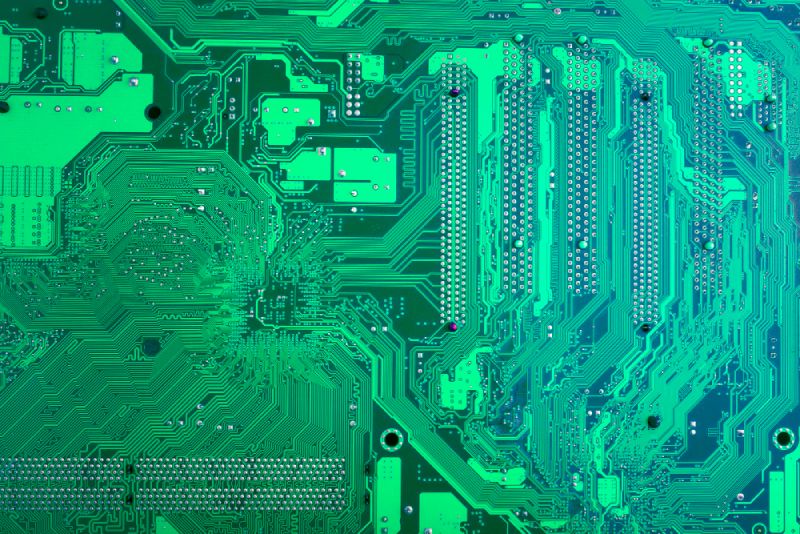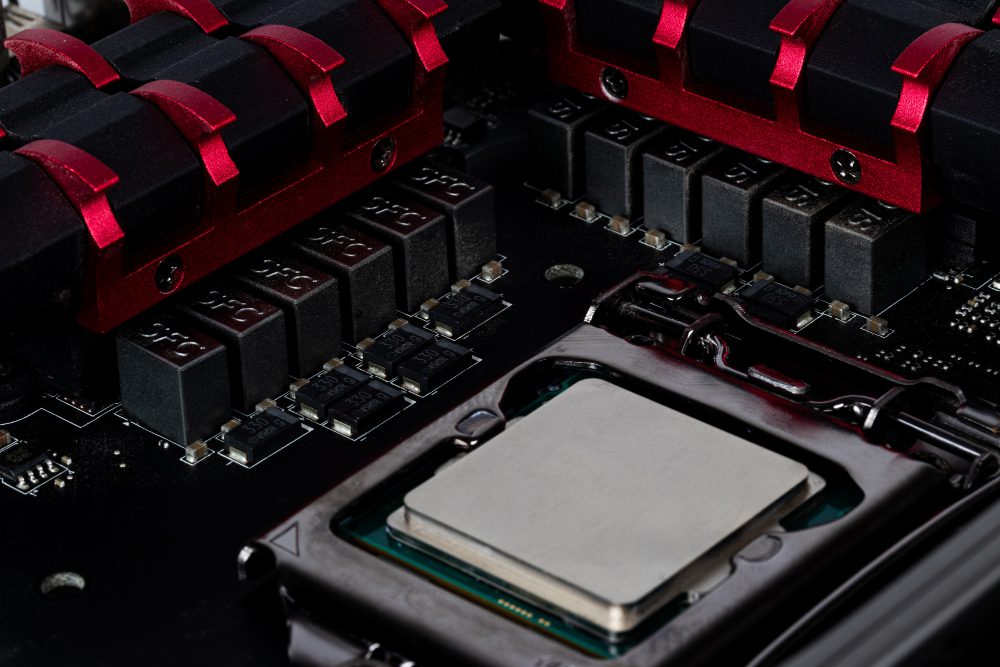Is a 256GB SSD better than a 1TB hard drive?
When it comes to storage options for computers and laptops, there are numerous choices available in the market today. Two popular options are solid-state drives (SSDs) and traditional hard disk drives (HDDs). Among these, the capacity is an important factor to consider. In this article, we will explore the question of whether a 256GB SSD is better than a 1TB hard drive.
Overview of SSDs and HDDs
Before diving into the specifics, let’s briefly understand the differences between SSDs and HDDs. An SSD is a storage device that uses integrated circuit assemblies to store data persistently. It has no moving parts and relies on flash memory to store data. On the other hand, an HDD uses magnetic storage to write and read data onto one or more rotating disks.
Comparing Capacity: 256GB vs 1TB
When it comes to storage capacity, a 1TB hard drive clearly has an advantage over a 256GB SSD. The term “1TB” stands for one terabyte, which is equivalent to 1,000 gigabytes (GB). In contrast, a 256GB SSD offers significantly less space for storing files, documents, applications, and media.
So, why would anyone choose a lower-capacity SSD over a higher-capacity hard drive? The answer lies in the performance benefits offered by SSDs.
Performance Benefits of SSDs
SSDs are known for their fast read and write speeds, which can greatly enhance the overall performance of a computer or laptop. Unlike HDDs, which rely on mechanical movements and spinning disks, SSDs use flash memory technology to access data quickly. This results in faster boot times, quicker file transfers, and improved responsiveness.
Additionally, SSDs have no moving parts, making them more durable and less susceptible to damage caused by drops or vibrations. They also generate less heat and consume less power, leading to better energy efficiency.
Key Advantages of SSDs:
- Faster read and write speeds
- Improved overall performance
- Greater durability and reliability
- Lower power consumption
Despite these advantages, it’s important to consider the trade-off between storage capacity and performance when making a decision.
“While a 1TB hard drive offers more space for data storage, a 256GB SSD provides a significant boost in performance.”
Choosing the Right Option
The decision between a 256GB SSD and a 1TB hard drive ultimately depends on your specific needs and priorities. If you require ample storage space for large files, games, or media libraries, then a 1TB hard drive is the logical choice. However, if you prioritize speed, responsiveness, and improved system performance, a 256GB SSD is the way to go.
It’s worth noting that many users opt for a combination of both SSD and HDD storage. This allows them to install the operating system and frequently used applications on the SSD for optimal performance, while utilizing a larger hard drive for data storage.
In conclusion,
a 256GB SSD offers undeniable performance benefits, but a 1TB hard drive provides significantly more storage capacity. The choice ultimately comes down to your personal preferences, budget, and specific requirements. Assessing your storage needs, considering factors such as speed, capacity, and budget, will help you make an informed decision that suits your individual needs.
Is 256 SSD enough for gaming?
When it comes to gaming, storage space is an important consideration. The question of whether a 256GB solid-state drive (SSD) is enough for gaming is a common one among gamers. While 256GB may seem like a reasonable amount of storage, there are several factors to consider before making a decision.
Game Sizes
Modern video games can be quite large in size. Triple-A titles often require several tens of gigabytes, and as gaming technology continues to advance, these file sizes are only expected to increase. With a 256GB SSD, you may find yourself running out of space quickly, especially if you install multiple games.
Operating System and Other Files
It’s important to note that the operating system itself will take up a significant portion of the SSD’s capacity. Additionally, other files such as drivers, updates, and game patches will also consume space. It’s advisable to leave some room for these essential files to ensure smooth performance.
Benefits of SSDs for Gaming
While a 256GB SSD may have limitations in terms of storage capacity, it offers significant benefits for gaming. SSDs provide faster loading times and improved overall performance compared to traditional hard disk drives (HDDs). Games installed on an SSD will launch quicker and experience reduced in-game loading times, contributing to a smoother gaming experience.
Alternative Options
If you find that a 256GB SSD doesn’t provide enough space for your gaming needs, there are a few alternative options to consider:
- Purchasing an additional external hard drive or SSD specifically for gaming storage
- Upgrading to a larger capacity SSD
- Using cloud storage services to offload some games
Remember that the amount of storage you require will depend on your gaming habits and the types of games you play. If you primarily play smaller indie games or focus on a few large titles at a time, a 256GB SSD may be sufficient. However, if you tend to install numerous AAA games simultaneously, it’s worth considering investing in a larger storage solution.
In summary, while a 256GB SSD offers benefits such as faster loading times and improved performance, it may not provide enough space for extensive gaming libraries. Consider your gaming habits and the types of games you play before making a decision. It’s important to strike the right balance between storage capacity and performance to ensure an optimal gaming experience.
Is 2TB SSD too much for gaming?
Gaming enthusiasts often face the dilemma of choosing the right amount of storage for their gaming setup. With the increasing popularity of solid-state drives (SSDs), the question arises, “Is 2TB SSD too much for gaming?” Let’s delve into this topic and explore the pros and cons of having a 2TB SSD for gaming.
Advantages of a 2TB SSD
1. Ample Storage: One of the primary advantages of a 2TB SSD is the substantial storage it offers. Modern games, especially those with high-resolution textures and expansive worlds, can occupy significant amounts of disk space. With a 2TB SSD, you can install numerous games without worrying about running out of storage quickly.
2. Faster Load Times: SSDs provide faster load times compared to traditional hard disk drives (HDDs). This means games installed on a 2TB SSD will load faster, allowing you to jump into the action more swiftly. Reduced load times can enhance your gaming experience and improve overall gameplay.
3. Quick File Transfers: The speed of an SSD also benefits file transfer operations. If you regularly move large files or frequently backup your game saves, having a 2TB SSD enables quick and efficient file transfers.
Considerations for a 2TB SSD
1. Cost: As technology advances, SSD prices have become more affordable, but higher storage capacities come at a premium. A 2TB SSD can be more expensive compared to lower capacity options. Consider your budget and prioritize storage needs before making a purchase decision.
2. Overkill for Casual Gamers: If you primarily play a few games or are a casual gamer, a 2TB SSD may be excessive. In such cases, a smaller capacity SSD or a combination of SSD and HDD might offer a more cost-effective storage solution.
3. Game Library Management: Having ample storage can sometimes lead to accumulating a large game library. Without proper organization, finding specific games or managing updates can become challenging. Consider implementing a system to organize your games effectively.
Remember, having too much storage never hurts, but it may not always be necessary for every gaming setup.
Ultimately, the decision of whether a 2TB SSD is too much for gaming depends on individual needs and preferences. It offers significant advantages in terms of storage capacity, load times, and file transfers. However, budget constraints and usage patterns should also be taken into account. Assess your requirements, weigh the pros and cons, and make an informed choice that aligns with your gaming habits and budget.
Is 1 Terabyte Enough for Gaming?
Gaming has become increasingly popular and immersive over the years, with graphics and game worlds becoming more realistic and detailed. With these advancements, games have also become larger in size, requiring significant amounts of storage space. This raises the question: is a 1 terabyte (TB) hard drive enough for gaming?
The Size of Modern Games
Modern games can range anywhere from a few gigabytes (GB) to over 100 GB in size. AAA titles, which are high-budget, major releases, often take up a considerable amount of space. For example, popular games like Red Dead Redemption 2 and Call of Duty: Modern Warfare can take up around 150 GB each. RPGs and open-world games tend to be even larger.
Furthermore, game updates and downloadable content (DLC) can quickly consume storage space. Frequent updates and patches are common in today’s gaming landscape, often requiring several gigabytes of additional storage.
The 1 Terabyte Dilemma
A 1 TB hard drive may seem like a significant amount of storage, but it can fill up quickly, especially if you frequently install and play new games. With just a handful of large games and regular updates, your storage capacity could be exhausted in no time.
In addition to games, most gamers also have other files and applications on their computers, further reducing the available storage space. This includes operating systems, personal files, and other software.
Managing Game Storage
While 1 TB may not be enough for gaming enthusiasts who constantly switch between games and play the latest releases, there are ways to manage storage effectively.
- Regularly Uninstall Games: Delete games that you no longer play to free up space. You can always reinstall them in the future if desired.
- Invest in External Storage: Consider getting an external hard drive or SSD specifically for game storage. This allows you to expand your storage capacity without replacing your existing drive.
- Optimize Storage Settings: Some games allow you to choose which components to install, such as multiplayer modes and high-resolution textures. Opting for smaller installations can save valuable space.
Can you get 1TB of RAM?
RAM (Random Access Memory) is an essential component of any computer system. It provides fast, temporary storage for data that is actively being used by the CPU. While most computers today come with a few gigabytes (GB) of RAM, there are high-performance systems that offer much larger capacities. But can you get 1 terabyte (TB) of RAM? Let’s find out.
Understanding RAM Capacity
RAM capacity is determined by the number of memory modules installed in a computer and the maximum amount of RAM each module can support. The most common type of RAM for consumer computers is DDR4, which currently has a maximum capacity of 64GB per module. This means that to achieve 1TB of RAM, you would need a system with 16 memory slots, each populated with a 64GB module.
Practical Limitations
While it is technically possible to have a computer with 1TB of RAM, it is not a configuration you would typically find in consumer-grade systems. The cost of 1TB of RAM would be exorbitant, making it a viable option only for specific use cases such as enterprise servers or supercomputers.
Quote: “Having 1TB of RAM may sound impressive, but for the majority of users, it is unnecessary and overkill for everyday computing tasks.” – Computer Expert
Alternatives to Massive RAM
If you require high-performance computing but don’t need 1TB of RAM, there are alternative solutions available. One option is to utilize solid-state drives (SSDs) or NVMe drives, which offer significantly faster storage access times compared to traditional hard disk drives (HDDs).
Another approach is to optimize your software and system to efficiently utilize the available RAM. This can involve techniques such as memory caching, virtual memory management, and reducing unnecessary background processes.
In Conclusion
While it is technically possible to have a computer with 1TB of RAM, it is not practical or cost-effective for most users. For the average consumer, a few gigabytes or even 16GB to 32GB of RAM is more than sufficient for everyday computing needs. Remember, it’s always important to consider your specific requirements before investing in high-capacity RAM configurations.
Can my PC handle 16GB RAM?
Upgrading your computer’s RAM is a great way to boost its performance and improve multitasking capabilities. If you’re considering upgrading to 16GB of RAM, it’s important to determine whether your PC can handle this increased memory capacity. Here are some factors to consider:
1. Operating System Compatibility
Before upgrading, ensure that your operating system supports 16GB of RAM. Most modern operating systems, such as Windows 10, macOS Mojave, and the latest versions of Linux, can handle this amount without any issues.
2. Motherboard Specifications
Check your computer’s motherboard specifications to confirm its maximum RAM capacity. You can typically find this information in your motherboard’s manual or by searching the manufacturer’s website. Look for details like the number of memory slots available and the maximum supported RAM per slot.
3. Processor Limitations
Your computer’s processor also plays a role in determining the maximum RAM it can support. Older processors may have limitations on the amount of RAM they can address. Consult your processor’s specifications to ensure compatibility with 16GB of RAM.
4. Current RAM Configuration
If your PC already has some RAM installed, check its configuration. For example, if you have two memory slots filled with 4GB RAM modules, you might need to replace them with 8GB modules to achieve a total of 16GB.
It’s worth noting that even if your PC can handle 16GB of RAM, it may not necessarily benefit from it. The upgrade is most beneficial for resource-intensive tasks like video editing, gaming, or running virtual machines.
“The amount of RAM you need depends on how you use your computer. For general everyday tasks, 8GB is usually sufficient, but if you constantly find yourself pushing the limits of your current RAM capacity, upgrading to 16GB can provide a noticeable improvement in performance.”
If you’ve confirmed that your PC is capable of supporting 16GB of RAM and you require the additional memory, here’s a simple guide to help you upgrade:
- Power off your computer and unplug it from the power source.
- Open the computer case following the manufacturer’s instructions.
- Locate the RAM slots on your motherboard.
- Carefully insert the new RAM modules, ensuring they are properly aligned with the slots.
- Apply gentle and even pressure until the modules are fully seated in the slots.
- Close the computer case, plug in the power, and power on your PC.
- Confirm that your computer recognizes the new RAM by checking the system information or using diagnostic tools.
Remember, if you’re not comfortable performing the upgrade yourself, it’s always recommended to seek professional assistance.
Overall, upgrading to 16GB of RAM can significantly improve your computer’s performance if your PC supports it. Take into account your operating system compatibility, motherboard specifications, processor limitations, and current RAM configuration before making your decision.
Conclusion
In today’s gaming landscape, a 1 terabyte hard drive may not be sufficient for many gamers. The increasing size of games, frequent updates, and additional content can quickly eat up storage space. To ensure you have enough room for your gaming needs, it’s recommended to consider larger storage options or implement effective storage management strategies.
Ultimately, the amount of storage you need depends on your gaming habits and preferences. If you’re a casual gamer who plays a few small-to-medium-sized titles, 1 TB may be enough. However, for avid gamers and those who enjoy playing the latest AAA releases, investing in more storage will provide a smoother gaming experience without constant worries about available space.



